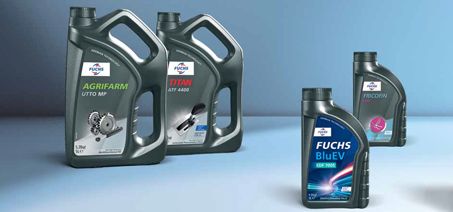If you have ever driven a car, you have probably heard that ‘oil is the lifeblood of the engine.’ And although it sounds like an exaggerated metaphor, it is not far from the truth. Without oil, an engine cannot run for long; it wears out and eventually breaks down. But why exactly is it so important? We explain it in the following article.
What is motor oil?
Motor oil is a lubricant designed to reduce friction between the moving parts of an engine. It also performs vital functions such as cooling, cleaning and protecting internal components. It is composed of a series of components that are used to lubricate and improve the performance and service life of internal combustion engines.
There are several types of motor oil, also known as lubricating oil: mineral, synthetic and semi-synthetic. Each has unique characteristics that make it more suitable for certain vehicles and conditions.
Key functions of engine oil
Lubrication of parts
When the engine is running, thousands of metal parts move and rub against each other. The oil creates a protective film that prevents direct contact, reducing wear and tear.
Wear reduction
An engine without lubrication overheats and its parts deteriorate rapidly. Oil acts as a shield that prolongs the engine's service life.
Engine cooling
Oil helps dissipate heat generated by combustion and friction, preventing overheating.
Corrosion protection
Oil forms a protective barrier on parts against moisture and acidic compounds resulting from combustion.
Internal engine cleaning
As it circulates, oil traps particles, debris and sediment, keeping the engine clean and preventing blockages.
A well-lubricated engine can last for thousands of kilometres, as it reduces friction and prevents premature damage. On the other hand, driving without oil can cause the engine to fail in a matter of minutes, causing irreparable damage.
Types of motor oil
These are the types of oil according to their origin:
It comes from petroleum refining and is more economical, but its durability is lower, as it is based on natural raw materials.
On the other hand, it has a wide range of viscosity grades and tends to have higher levels of impurities, offering lower levels of protection.
Manufactured in a laboratory from basic organic materials to offer better performance and resistance to extreme temperatures.
It is more refined, contains fewer impurities and has a higher viscosity index. This type of motor oil is also more expensive, but it has greater resistance to corrosion and oxidation (often reserved for higher-performance engines or vehicles).
Combines the best of the previous oils. Provides better performance than mineral oil at a lower price than synthetic oil.
What does ‘oil viscosity’ mean?
The SAE index
Oil numbers (such as 10W-40) indicate its viscosity. The first number refers to cold fluidity and the second to resistance to high temperatures.
Depending on the climate, we will choose one oil or another based on its viscosity. In cold areas, a more fluid oil is recommended, but in hotter climates, it should be more viscous.
Signs that the oil needs changing
- Colour and texture: if the oil is dark and contains particles, this is a sign that it needs changing.
- Engine noise: if you hear knocking or strange noises, this may indicate a lack of lubrication.
- Warning light on the dashboard: these indicators are a clear warning that there is a problem. They should not be ignored.
You should consider the type of oil, the use of the vehicle, and driving conditions. It is always advisable to follow the user manual, which specifies how many kilometres or months to change the oil.
It is also important to consider common mistakes in engine oil maintenance. For example, using the wrong oil can be harmful. Delaying the change degrades the oil and reduces its protective capacity.
All these factors influence the proper functioning of the vehicle. Oil in good condition reduces friction and improves efficiency, which can save fuel.
What engine oil do I need for my vehicle?
It is essential that you check the manufacturer's specifications when choosing motor oil, as using the wrong one can affect your vehicle's performance and even cause serious damage to components.
We understand that choosing the right motor oil for your vehicle can be a complex task. That's why the FUCHS oil selector takes the guesswork out of it and allows you to find the right product in less than a minute. Simply enter your vehicle's registration number or make and model to discover the right lubricants for your specific vehicle.
You can also contact an expert from the team using the enquiry form below.
Need more advice?
Get an overview of our wide range of automotive lubricants for passenger cars and commercial vehicles in our > product finder.
With the > oil chooser from FUCHS you reach step by step the optimum lubricant for your vehicle.
FAQs
Frequently asked questions about engine oil:
It is not recommended and should only be done in cases where the oil level in the pump is below the minimum. It can affect performance and protection.
Not always. It depends on your engine and the manufacturer's recommendations.
It can create excessive pressure and damage the engine seals.
Yes, it loses its properties over time.
Yes, if you have the tools and follow the correct instructions.


